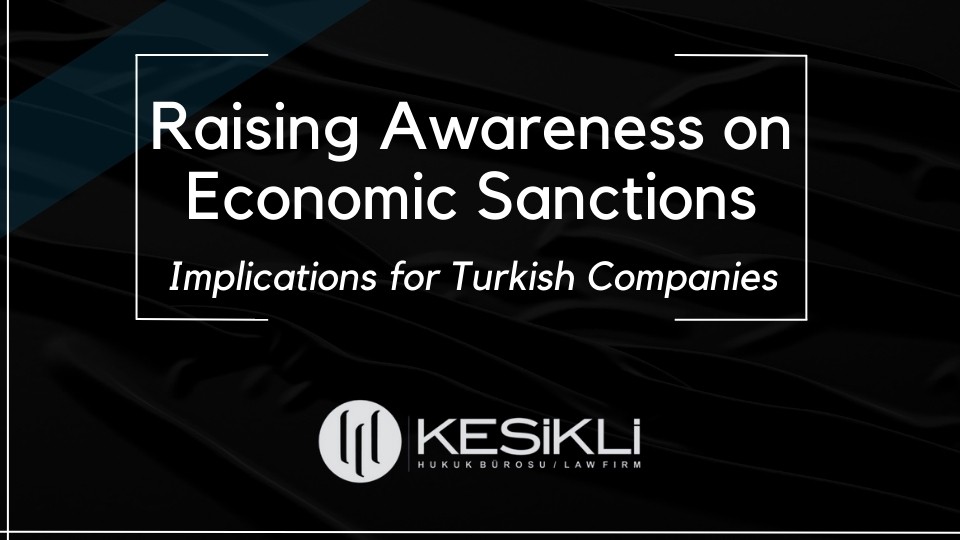1. INTRODUCTION
The right that allows individuals to request that their data, which has been spread legally and correctly to be denied access is called “the right to be forgotten”. This right is a new generation right that has been raised by intensifying the debate about whether the traces of individuals in the digital world, especially on social media, can be erased upon their request. The right to be forgotten, which is an extension of the personal data protection right, prevents the individual's past being an obstacle to its future, by ensuring that the person's past is erased from the memories at the point where it loses its recentness and public interest, even if it was spread legally.
When it comes to the right to be forgotten, a conflict of rights arises. On the one hand, the person has the right to be forgotten, while on the other hand, there is freedom of information, freedom of the press and freedom of expression. The balance to be established in this conflict is very crucial According to the principle of practical congruence, a choice should not be made between conflicting rights. Without sacrificing one right for the other, mutual compromise shall be found by making the same concessions from both sides.
In this article, the right to be forgotten will be discussed with judicial decisions from various countries.
2. RELATED LEGAL REGULATIONS
The right to be forgotten is one of the rights covered in the EU General Data Protection Regulation (“GDPR”). Importance of this right has emerged with digital developments and it has started to be protected with new regulations accordingly.
According to Article 17 of the GDPR, “The data subject shall have the right to obtain from the controller the erasure of personal data concerning him or her without undue delay and the controller shall have the obligation to erase personal data without undue delay.” This right can be used in case the personal data are no longer necessary in relation to the purposes for which they were collected or otherwise processed; the data subject withdraws consent on which the processing is based and where there is no other legal ground for the processing; the data subject objects to the processing and there are no overriding legitimate grounds for the processing or the data subject objects to the processing the personal data have been unlawfully processed; the personal data have to be erased for compliance with a legal obligation in Union or Member State law to which the controller is subject; the personal data have been collected in relation to the offer of information society services.
In Turkey, the protection of personal data and the right to be forgotten were added to the Constitution with the amendments adopted in 2010. According to the 3rd paragraph of article 20 of the Constitution, “Everyone has the right to request the protection of his/her personal data. This right includes being informed of, having access to, and requesting the correction and deletion of his/her personal data, and to be informed whether these are used in consistency with envisaged objectives. Personal data can be processed only in cases envisaged by law or by the person’s explicit consent. The principles and procedures regarding the protection of personal data shall be laid down in law.”
The right to be forgotten is regulated as follows under Article 7/1 of the Personal Data Protection Law No. 6698 ("KVKK"), which came into force in the years following this amendment: “Despite being processed in compliance with the provisions of this Law and other relevant laws, personal data shall be erased, destructed or anonymized by the data controller, ex officio or on the request of the data subject, in the event that the reasons for the processing no longer exist.” The erasing process mentioned here makes the data inaccessible; destruction means complete elimination. Anonymization can be done in the form of masking, creating cumulative data, or deriving data.
As can be observed from the regulation, it is aimed to prevent the data from being exposed due to outdatedness. In this way, it is possible for the individual to improve itself and continue its life by erasing the negative traces of the past. As with all human rights, this right is based on the purpose of protecting human dignity.
3. JUDICIAL DECISIONS
3.1. Republic of Turkey
3.1.1. The decision of the Court of Cassation, General Assembly of Civil Chambers dated 17.06.2015 with the Case No. 2014/56 and the Decision No. 2015/1679
The General Assembly of the Supreme Court of Appeals decided as follows in the application filed after the criminal case of a sexual assault, of which the plaintiff was a victim years ago, was the subject of a book without her name being coded:
“At the heart of the problem we are faced with is the right to be forgotten and the consequent protection of personal data and personality rights, and the determination of the boundaries of freedom of science and art against each other. The point to be considered in the solution of the problem is to establish a fair balance between the freedom of science and art and the fundamental rights of the individual. … It should also be stated that; Considering the definitions of the right to be forgotten, although it is regulated for digital data, when the characteristics of this right and its relationship with human rights are taken into account; it is clear that it should be accepted not only for personal data in the digital environment, but also for personal data kept in a place easily accessible to the public.”
In this decision, the importance of forgetting an unfortunate event in the past and freely shaping the future, in other words, providing the opportunity to open a new page in one's life was emphasized.
3.1.2. N.B.B. Decision of the Constitutional Court with Application No 2013/5653 dated 03.03.2016
In this decision of the Constitutional Court, the applicant applied to the Constitutional Court for the removal of the archive record of the news about him using drugs published on a newspaper's website years ago. When it comes to the right to be forgotten in the decision, the issue of damaging the reputation of the person due to the fact that the news about the person is outdated is discussed as follows:
“As of the date of application, it is clear that the news in question relates to an event about fourteen years ago and thus loses its recentness. In terms of the content of the news, it cannot be said that it is obligatory to ensure that news about drug use is easily accessible on the Internet for historical, statistical or scientific purposes. In this context, it is clear that the easy accessibility of the news published on the Internet about the applicant, who does not have a political or media personality in terms of public interest, damaged the applicant's reputation.”
While evaluating the right to be forgotten in its decision, the Constitutional Court discussed the case from various aspects. These criteria, including but not limited to those listed; are the content of the publication, the duration of its publication, its outdatedness, its inability to be considered as historical data, its contribution to the public interest (the value of the news from a social point of view, the quality of the news that sheds light on the future), whether the person who is the subject of the news is a politician or famous, the subject of the news or article, whether the news contains facts or value judgment in this context, and the public's interest in the relevant data.
3.1.3. Decision of the Personal Data Protection Board dated 23/06/2020 and numbered 2020/481
The Personal Data Protection Board rendered a recent decision in 2020, with regards to “requests of individuals for removal of their first and last names and the results of searches they made through search engines from the index," following several applications made on this subject by individuals. In the evaluation, search engines were accepted as “data controllers”, and the activities of search engines were described as "personal data processing". The Board; stated that individuals should first apply to search engines regarding their requests for the removal of search results from the index, and that if the data controller search engines reject such requests or do not respond to the applicant, the relevant persons may file a complaint with the Board or directly initiate legal proceedings.
The following expressions were made for determining the scope of the evaluation to be made, "in the evaluation of the requests for the removal of the results shown as a result of a search made by the individual concerned with his/her name and surname on search engines from the index, a balance test should be made between the fundamental rights and freedoms of the person concerned and the benefits that the public will derive from obtaining the information. It has been stated that which of the benefits outweighs and that the explanations given in the link below should be taken into consideration while making this evaluation, but the criteria to be taken into account in the evaluation process of the complaints on this subject will not be limited to these, and additional criteria may be brought to the agenda by the Board specific to each concrete case.”
In this way, the way to be followed in the event of requests for removal from the index has been determined and the way for applications to be made in this regard has also been opened in Turkey. It is stated that if the right to be forgotten outweighs the compared interests, it will be possible to remove such personal data from the index.
3.2. GERMANY - 1973 LEBACH DECISION
In 1973, a lawsuit was filed after a convict's name was used in a documentary. In this decision, the importance of personal space and personal autonomy was revealed with the following expressions: “The reflex effect of the constitutional guarantee of personality does not, however, allow the media of communication, apart from contemporary reporting, to deal indefinitely with the person of the criminal and his private sphere. Instead, when the interest in receiving information has been satisfied, his right ‘to be left alone’ gains increasing importance in principle and limits the desire of the mass media and the wish of the public to make the individual sphere of his life the object of discussion or even of entertainment. Even a culprit, who attracted public attention by his serious crime and has gained general disapproval, remains a member of this community and retains his constitutional right to the protection of his individuality. If with the prosecution and conviction by a criminal court the act attracting the public interest has met with the just reaction, of the community demanded by the public interest, any additional continued or repeated invasions of the personal sphere of the culprit cannot normally be justified.”
3.3. USA - MELVIN V REID
U.S. Supreme Court held in its decision of Melvin v Reid that the person has the right to seek and achieve happiness, and that this right is guaranteed by the fundamental law of the state. According to the decision, “The right to pursue and obtain happiness is guaranteed to all by the fundamental law of our state. This right by its very nature includes the right to live free from the unwarranted attack of others upon one's liberty, property, and reputation. Any person living a life of rectitude has that right to happiness which includes a freedom from unnecessary attacks on his character, social standing or reputation.”
3.4. SPAIN - Google Spain SL, Google Inc. v Agencia Española de Protección de Datos, Mario Costeja González
A lawyer named Mario Costeja González applied to the court to ensure removal of the news regarding his house being auctioned off because of his unpaid debts. In the dispute brought to the Court of Justice of the European Union, the right to privacy was prioritized over the right to information act, and it was stated that the opposite could be the case only if there is a superior public interest. It was decided that search engines were also responsible for the content they published, and it paved the way for many applications to Google by setting a precedent. The importance of the right to be forgotten was emphasized in the decision as follows:
“This situation, which has emerged with the widespread use of the Internet together with the effective use of the Internet by the press, has disrupted the balance between freedom of expression and press and the protection of honour and dignity in favour of the former. Freedom of expression and the press, as well as the right to protect honour and reputation, are fundamental rights and freedoms that require equal protection. Therefore, it has become a necessity to restore the disturbed balance between both fundamental rights. Today, when it is difficult to be forgotten with internet journalism, it can be possible by accepting the right of individuals to be forgotten in terms of honour and reputation. In this context, the right to be forgotten is indispensable for the establishment of a fair balance."
3.5. The European Union
The European Union Court of Justice explains the protection of personal data in its decision dated 24.09.2019 as follows:
“The processing of personal data should be designed to serve humanity. The right to protection of personal data is not an absolute right; It must be considered in connection with its function in society and must be balanced with other fundamental rights in accordance with the principle of proportionality.”
4. CONCLUSION
Although the right to be forgotten was not one of the rights listed in the constitutions in the past, its importance has been realized with the developing technology and digital platforms and it has been the subject of many disputes and court decisions. Individuals' right to be forgotten has been protected in the European Union by GDPR; and protected by KVKK in Turkey. This right, which is based on human dignity, is indispensable for the protection of a person's private life and for a happy life in his own field.
@Yağmur Ceylan
Let's Get Connected!



